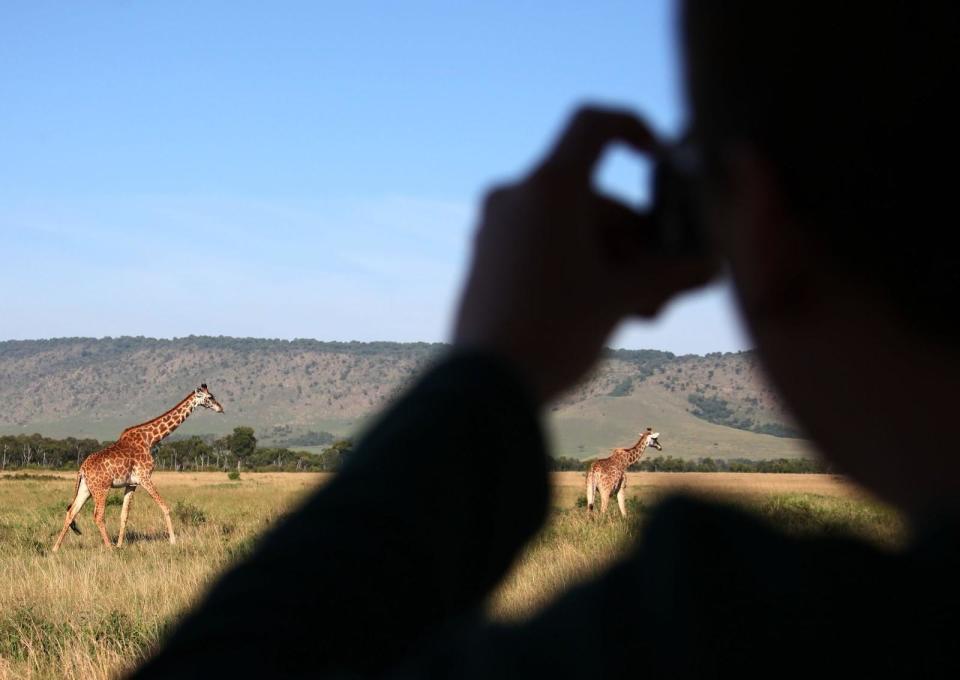Why African filmmakers aren’t producing nature documentaries
The Scene
Every year, many nature and conservation films are shot in African countries and broadcast around the world, showcasing the continent’s abundance of wildlife, stunning landscapes, and cultures. But Africans are rarely responsible for these productions.
Local producers say opportunities for African filmmakers in the field are few and far between due to factors including limited access to parks and reserves, and the prohibitive cost of equipment, production, and distribution. As a result, many of the African nature films, shows and documentaries that gain global acclaim are produced by Western production companies and media houses such as the BBC.
A number of organizations have in recent years sought to change this. Among them is Nature, Environment & Wildlife Filmmakers (NEWF), a Durban, South Africa-based nonprofit founded by producers Noel and Pragna-Partosam Kok to build the capacity of African nature filmmakers. In 2022, it launched a collaborative program with the science and media nonprofit National Geographic Society to boost budding nature filmmakers across the continent. The initiative dubbed Africa Refocused offers filmmakers access to parks, equipment and specialized storytelling labs, such as a dive center to learn underwater filmmaking.
NEWF co-founder Noel Kok told Semafor Africa that it is also essential for homegrown talent to build local audiences for nature films. He noted that broadcasters and streaming platforms in Africa more readily commission entertainment genres, such as dramas and comedies, but rarely do the same for nature films.
“How do you change the story? You change the storyteller,” Kok said. “Our work is focused on changing the storyteller in Africa’s nature stories so that our perspectives as Africans are represented, and the key to do that is breaking down the barriers of entry and providing access.”
Martin’s view
Thanks to its flora and fauna, Africa is uniquely positioned to capitalize on international demand for nature films, documentaries and TV shows. But when you think of high-profile nature film producers and presenters there are few African names or faces that come to mind. The perspectives of African filmmakers would add immense value to nature storytelling on the continent, not least thanks to their innate understanding of their country’s landscape, communities and cultures.

One way to boost this would be for local broadcasters and streaming platforms to commission and license programming by African nature filmmakers, and potentially grow their audiences and revenues in the process. Dr. Paula Kahumbu, a Kenyan filmmaker and CEO of conservation organization Wildlife Direct, saw her documentary ‘Secrets of the Elephants’ earn two nominations at this year’s PrimeTime Emmy Awards, proving the value African nature filmmakers can offer.
The Africa Refocused program, backed by National Geographic Society, has so far supported 137 nature storytellers since its establishment, helping to create a stronger pipeline of talent and content. The American nonprofit is the parent to its higher profile NatGeo media joint venture which is one of the largest producers of wildlife documentaries and magazines in the world. In recent years it has been trying to recast itself as a more equitable player in the spaces it covers after much criticism.
African filmmakers should also be able to offer more authentic representations of local communities, their cultural practices and interactions with nature and wildlife. Try as they might, many nature documentaries today lack important cultural and historical context when, for example, addressing conservation in Africa or human-wildlife conflict among other topics.
But without supportive policies, adequate resources or traditional film distribution channels at their disposal, African nature filmmakers are likely to increasingly leverage social media and digital platforms to tell and share their stories.
The View From Botswana
A UNESCO report on Africa’s film industry notes that even in a prime wildlife filmmaking destination such as Botswana, limited funding for content means private TV stations require filmmakers to pay to have their content aired. To turn a profit, filmmakers have to find advertisers themselves.
Labdi Ommes, who helped develop the soundtrack for the documentary Nkashi: Race to the Okavango, shot in Botswana’s Okavango Delta, told Semafor Africa that the impact of investment in African nature filmmakers would be felt across the larger creative economy. She observed, for example, that using local artists and music could help preserve cultural sounds and traditional African instruments while creating more opportunities for African artists and potentially lowering music licensing costs for filmmakers.
Notable
Despite increased investment by major streaming platforms in Africa, filmmakers on the continent are staring at a tough 2024 due to a raft of economic challenges, Semafor Africa reported in January.

